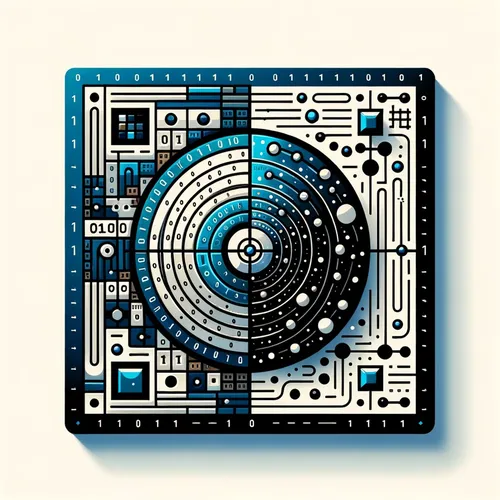Quantum Bombshell: Diamond Tech, Hybrid AI, and Googles Willow Chip Unleashed in 2025!
- Author
- Quiet. Please
- Published
- Thu 23 Jan 2025
- Episode Link
- https://www.spreaker.com/episode/quantum-bombshell-diamond-tech-hybrid-ai-and-googles-willow-chip-unleashed-in-2025--63854581
This is your Quantum Bits: Beginner's Guide podcast.
Hi, I'm Leo, your go-to expert for all things quantum computing. Let's dive right into the latest breakthroughs that are making quantum computers easier to use.
Just a few days ago, I was reading about the predictions for 2025 from Marcus Doherty, Co-Founder and Chief Scientific Officer of Quantum Brilliance. He highlighted the potential of diamond technology in quantum computing, which allows for room-temperature quantum computing without the need for large mainframes or absolute zero temperatures. This means we can have smaller, portable quantum devices that can be used in various locations and environments, bringing us closer to scaling quantum devices[1].
Another significant advancement is in hybridized and parallelized quantum computing. Quantum Brilliance's partnership with Oak Ridge National Laboratory is yielding advancements in both applications. This is crucial because it means quantum computers can be integrated with classical systems, making them more practical and commercially viable.
But what really caught my attention was the recent development of the Willow chip by Google Research. This quantum computer chip demonstrates real-time error correction and performance that points the way to the creation of a practical quantum computer. The Willow chip uses a new design that reduces errors as the number of qubits increases, which is a significant breakthrough in dealing with physical errors in quantum computing[4].
The implications of this are vast. For instance, researchers from the University of Hamburg have shown how to solve the Traveling Salesman Problem for up to 9 cities using just one qubit. This technique, detailed in their 2024 paper, shows how quantum computers with a limited number of qubits can solve previously intractable problems.
Moreover, the integration of quantum computing with artificial intelligence is expected to pick up speed in 2025. Hybrid quantum-AI systems will impact fields like optimization, drug discovery, and climate modeling, while AI-assisted quantum error mitigation will enhance the reliability and scalability of quantum technologies[1].
In conclusion, the latest quantum programming breakthroughs are making quantum computers easier to use by addressing error correction, scalability, and practical applications. With advancements in diamond technology, hybrid quantum-classical systems, and AI integration, we're on the cusp of a quantum revolution that will transform industries and solve complex problems that were previously beyond our reach. Stay tuned, because 2025 is shaping up to be a pivotal year for quantum computing.
For more http://www.quietplease.ai
Get the best deals https://amzn.to/3ODvOta
